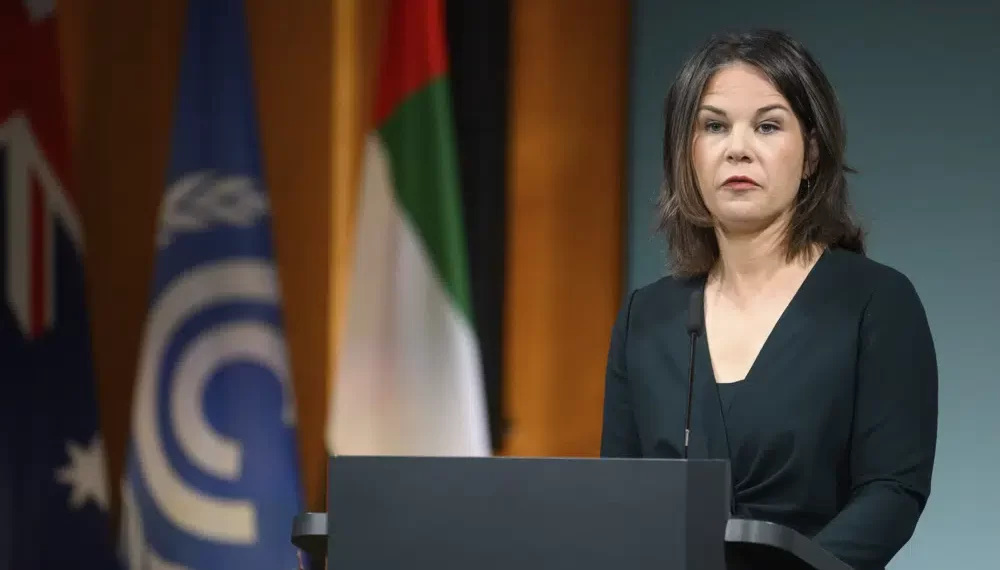Germany has called for governments around the world to work on setting an ambitious target for renewable energy that would “ring in the end of the fossil fuel age” and help prevent dangerous global warming.
Speaking at the start of a two-day meeting in Berlin attended by dozens of top climate envoys, German Foreign Minister, Annalena Baerbock noted that the world needs to sharply cut greenhouse gas emissions in order to limit global warming to 1.5 degrees Celsius (2.7 degrees Fahrenheit).
“But we also know that not all countries are prepared to do so,” Baerbock said. “That is why I want to open the debate (…) on whether we should and can reach a target on renewables at the next climate conference,” she added.
Addressing officials from about 40 countries attending the annual Petersberg Climate Dialogue in the German capital, Baerbock disclosed that renewables such as solar and wind power are already the most cost-effective form of generating energy in most places around the world.
“Our goal for the (climate conference) in Dubai must be to ring in the end of the fossil fuel age,” she said.

The idea received a calm response from the United Arab Emirates, which will host this year’s U.N. climate summit.
Sultan al-Jaber, a former oil company executive averred, “In a pragmatic, just and well-managed energy transition, we must be laser-focused on phasing out fossil fuel emissions, while phasing up and scaling up viable, affordable zero-carbon alternatives.” He placed particular emphasis on the word “emissions” as he spoke.
Sultan al-Jaber will preside over the COP28 climate summit from November 30 to December 12, 2023.
“We know that the energies used today will continue to be part of the global energy mix for the foreseeable future. As such, we will work with the world to decarbonize the current energy system while we build a new one, capable of transitioning even the most heavy-emitting industries.”
Sultan al-Jaber
Needful To Find Solutions Workers In The Coal, Oil And Gas Industry
Environmental campaigners say solutions also need to be found for millions of workers in the coal, oil and gas industry if it is to be wound down successfully, as well as alternative sources of energy for billions of people around the world who still rely on cheap fossil fuels.
Harjeet Singh, Head of global political strategy at Climate Action Network International, opined, “What we need to see coming out of COP28 is not just about fossil fuel phase-out, but equitable phase-out of fossil fuels.”
Diplomats attending the meeting in Berlin will also be discussing how to ramp up various forms of financial aid for developing countries hardest hit by climate change.
Also, Baerbock noted a pledge for rich nations to provide $100 billion annually to poor countries by 2020 will meet its target for the first time this year.

A separate fund to help nations hit by climate disasters, agreed at last year’s climate talks in Egypt, is still being set up.
Pakistan’s Climate Minister, Sherry Rehman stressed the impatience of countries such as her own, which is still grappling with the effects of last year’s devastating deluges.
“We’re looking to move forward on finding paths to climate financing that is real, that is actionable, and that is delivered in time without institutionalized red tape to countries that are in need and countries that are in climate catastrophe.”
Sherry Rehman
U.S. climate envoy, John Kerry has said the total amount needed to help all countries make the economic transition to a green economy will run into the trillions of dollars. Experts say that in addition to aid, large sums will need to come from the private sector. Other sources such as carbon taxes on air and sea travel have also been floated.
READ ALSO: Palestinian Prisoner Dies In Israeli Jail After Hunger Strike




















